Tropical livestock are key to help feed the world
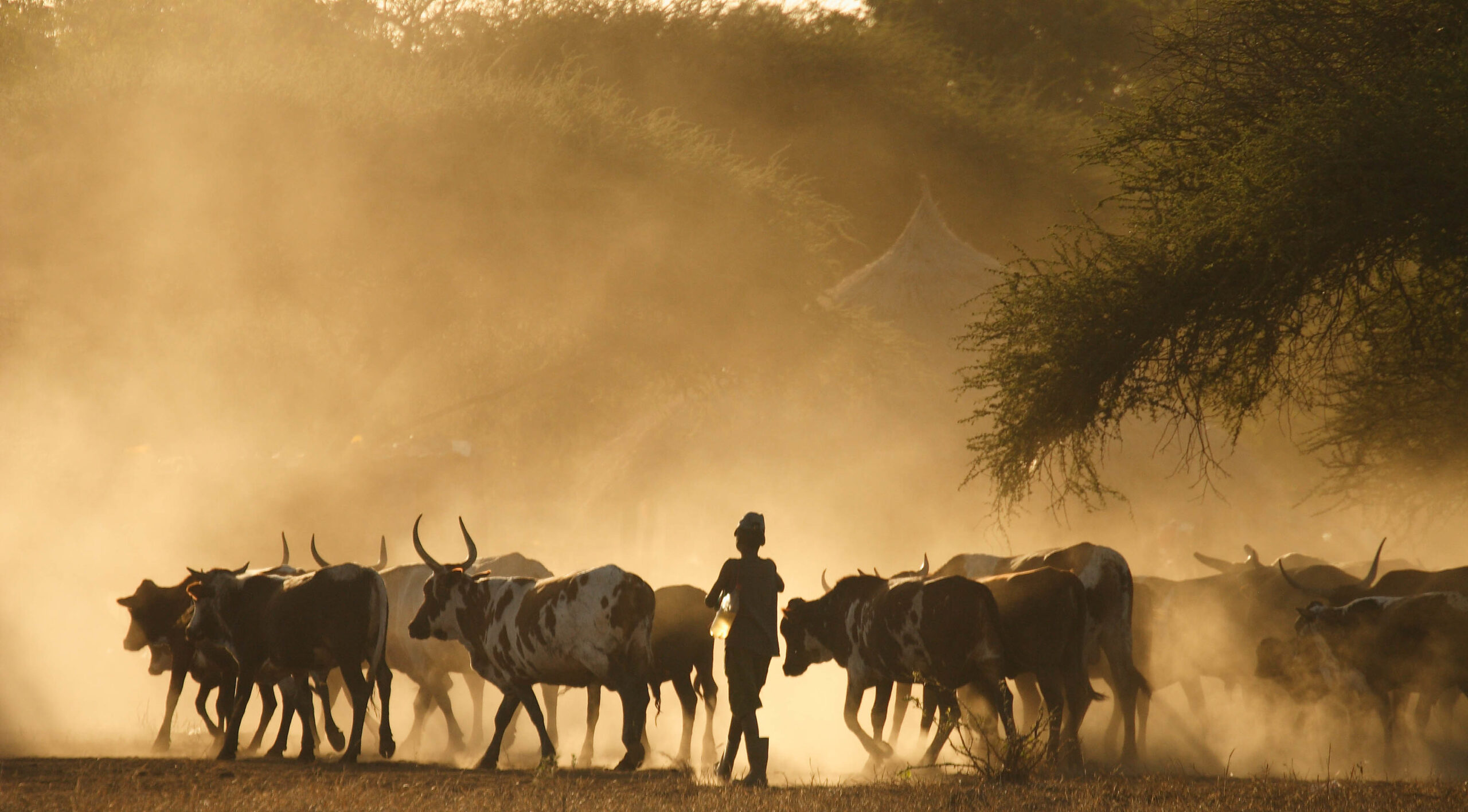
In this personal blog CTLGH Director Appolinaire Djikeng talks about why he believes that improving the genetics of livestock can help provide a pathway out of poverty for millions of families in low- and middle- income countries, and why the Centre’s work is very personal to him.
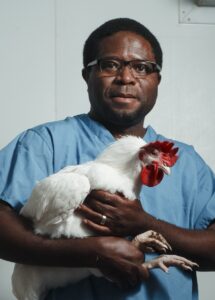
My name is Appolinaire Djikeng and I am the Director of the Centre of Tropical Livestock Genetics and Health (CTLGH), based at the Roslin Institute.
I am a livestock genomics scientist and have spent more than 20 years leading multi-disciplinary, multi-institutional and global research and development programmes focusing on agricultural development and human health.
Tackling hunger
As the global population grows, demand for animal protein, including milk and eggs, is increasing. It is estimated that the world will need to produce 70 per cent more food by 2050.
The World Health Organisation reported last year that one in nine people in the world does not get enough to eat, not only because of lack of food, but because there are no robust systems allowing people access to food. Some 151 million children are stunted owing to malnutrition, four out of five of whom live in south-east Asia or sub-Saharan Africa.
If livestock in places such as sub-Saharan Africa can sustainably produce more meat, milk and eggs, and have less impact on the environment, it will help improve both the nutrition and income of millions of smallholder farming families who rely on them.
In order to do this, agriculture has to be more efficient. The industry has to be strong enough to meet the needs of a growing global population, and ensure enough food for all.
Sustainable systems
The Covid pandemic has highlighted how fragile the global food system is. Here in the UK, we suffered from empty supermarket shelves as processing in plants and distribution networks were interrupted. However, for millions of people in low- and middle- income countries, who rely on visiting markets daily to buy food, Covid has been devastating. People have been unable to buy food and farmers have been left with food they cannot sell.
So, as well as developing a resilient and sustainable agricultural industry in tropical countries, we must work to strengthen the global agri-food system to be resilient to threats like Covid in the future.
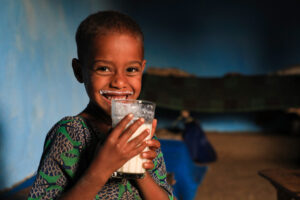 Personal mission
Personal mission
I have always wanted to try to improve the quality of the lives of people who are exposed to many externalities. For millions of smallholder farmers in tropical countries like Africa and south and south-east Asia, livestock are their only source of income and food. These people have no safety net so are, by definition, quite vulnerable.
It’s a very personal mission for me. I know first-hand the challenges that smallholder farmers in Africa face and the fragility of their livelihoods as my parents were pig and poultry farmers in Cameroon. Growing up, I realised that our livestock not only gave us the security of food, but their sale paid for my siblings and myself to go to school and become educated.
Huge potential
Although the agricultural industry in Africa is weak, the continent, like many tropical countries, has huge potential for producing more food. Africa has 60 per cent of the world’s uncultivated arable land and the livestock have been selected over generations by farmers to survive disease prone environment, challenging temperatures and marginal food accessibility.
But there is a definite trade-off – tropical livestock are not as productive as those in developed countries. For example, a typical dairy cow in Africa produces one-tenth of the milk of a typical dairy cow in the UK.
Improving genetics, improving productivity
I joined CTLGH in 2017 and lead the Centre in their mission to drive and support research to develop solutions to help improve the productivity, sustainability and resilience of livestock in low- and middle- income countries.
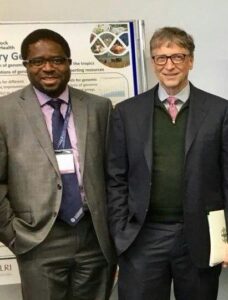
The Centre’s goal is to tailor and apply advanced breeding technologies routinely used in the West to livestock in Africa, South, South East and East Asia, in order to improve the health, welfare and productivity of animals, while retaining their ability to survive in challenging conditions and minimising their impact on the environment.
I joined the Centre because I was keen to work somewhere that has a direct impact on improving human health and agriculture in Africa and other low- and middle- income countries, and I am immensely proud of what CTLGH researchers and their collaborators across the globe have achieved since it was established in 2014.
The Centre is a strategic alliance between the University of Edinburgh through the Roslin Institute, Scotland’s Rural College (SRUC) and the International Livestock Research Institute (ILRI) in Kenya and Ethiopia. Together, the Centre’s researchers have already developed important tools to support genetic improvement in tropical livestock and, through training and research placements, have enhanced the scientific capacity of researchers in sub-Saharan Africa.
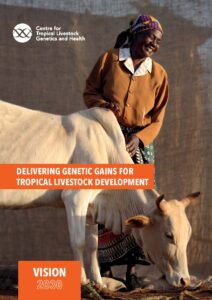 We are very grateful to our funders, the Bill & Melinda Gates Foundation, the UK Foreign, Commonwealth and Development Office (FCDO), the UKRI Biotechnology and Biological Sciences Research Council (BBSRC) and Jersey Overseas Aid, who support the Centre’s work.
We are very grateful to our funders, the Bill & Melinda Gates Foundation, the UK Foreign, Commonwealth and Development Office (FCDO), the UKRI Biotechnology and Biological Sciences Research Council (BBSRC) and Jersey Overseas Aid, who support the Centre’s work.
I am very excited about the future of the CTLGH. We recently launched our 2030 Vision document, which highlights the Centre’s key strategic objectives and focus for the next 10 years. I look forward to seeing how the Centre can work with others to improve tropical livestock genetics in the future.
Working together
I believe that everyone is equipped to contribute, innovate and to make a difference. By working together, through international collaborations and partnerships, we can tackle the huge challenge of global food security.
Together, we can make a change and improve the lives of millions of people living in hunger and poverty.




Comments are closed
Comments to this thread have been closed by the post author or by an administrator.